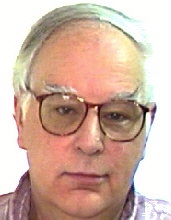Mike Olinick
Baldwin Professor of Mathematics & Natural Philosophy

- Office
- Warner 202
- Tel
- (802) 443-5559
- molinick@middlebury.edu
- Office Hours
- Monday, Wednesday, Friday 8:30-9:30 AM and 10:40-11:00 AM. Also Monday and Wednesday 12:05-1:00 PM, and by appointment.
Courses Taught
FYSE 1280
Breaking the Code: Alan Turing
Course Description
Breaking the Code: The Enigma of Alan Turing
British mathematician Alan Turing broke the German military’s prized Enigma cipher in World War II, created the foundations of modern computer science, and pioneered the fields of artificial intelligence (“Can Machines Think?”). Turing was arrested for homosexuality and forced to undergo hormone treatments which may have led to his apparent suicide by cyanide poisoning. His brilliant achievements and tragic death have been the subject of biographies, essays, plays, novels, and films. In this course we will explore the life, times, and works of this remarkable individual and consider how Turing would view the current state of artificial intelligence. 3 hrs. sem./screening
Terms Taught
Requirements
MATH 0122
Calculus II
Course Description
Calculus II
A continuation of MATH 0121, may be elected by first-year students who have had an introduction to analytic geometry and calculus in secondary school. Topics include a brief review of natural logarithm and exponential functions, calculus of the elementary transcendental functions, techniques of integration, improper integrals, applications of integrals including problems of finding volumes, infinite series and Taylor's theorem, polar coordinates, ordinary differential equations. MATH 0121 or equivalent, or by placement) 4 hrs. lect/disc.
Terms Taught
Requirements
MATH 0200
Current
Linear Algebra
Course Description
Linear Algebra
Matrices and systems of linear equations, the Euclidean space of three dimensions and other real vector spaces, independence and dimensions, scalar products and orthogonality, linear transformations and matrix representations, eigenvalues and similarity, determinants, the inverse of a matrix and Cramer's rule. (MATH 0121 or equivalent, or by placement) 3 hrs. lect./disc.
Terms Taught
Requirements
MATH 0223
Multivariable Calculus
Course Description
Multivariable Calculus
The calculus of functions of more than one variable. Introductory vector analysis, analytic geometry of three dimensions, partial differentiation, multiple integration, line integrals, elementary vector field theory, and applications. (MATH 0122 or equivalent. Not open to students who have taken MATH 0224.) 3 hrs. lect./disc.
Terms Taught
Requirements
MATH 0224
Current
Vector Calculus
Course Description
Vector Calculus
In this course students will apply the concepts and tools of linear algebra to analyze functions of multiple variables where domain and codomains are vectors, possibly of different dimensions. Students will learn introductory vector analysis, partial differentiation, multiple integration, line integrals, elementary vector field theory, and their applications. (MATH 0122 or equivalent, and MATH 0200. Not open to students who have taken MATH 0223.) 3 hrs. lect.
Terms Taught
Requirements
MATH 0226
Differential Equations
Course Description
Differential Equations
This course provides an introduction into ordinary differential equations (ODEs) with an emphasis on linear and nonlinear systems using analytical, qualitative, and numerical techniques. Topics will include separation of variables, integrating factors, eigenvalue method, linearization, bifurcation theory, and numerous applications. In this course, we will introduce MATLAB programming skills and develop them through the semester. (MATH 0122 or equivalent, and MATH 0200.) 3 hrs. lect./disc.
Terms Taught
Requirements
MATH 0315
Mathematical Modeling
Course Description
Mathematical modeling
An introduction into the process of developing and interpreting mathematical models within the framework of numerous applications. In this course, we will utilize discrete, continuous, and probabilistic approaches to explore applications such as population dynamics, epidemiology, and neuron activity. Time permitting, we may also introduce the derivation of spatiotemporal models. MATLAB will be used to implement and analyze several of these models. (MATH 0200 and MATH 0225 or MATH 0226) 3 hrs. lect./disc
Terms Taught
Requirements
MATH 0318
Operations Research
Course Description
Operations Research
Operations research is the utilization of quantitative methods as an aid to managerial decisions. In the course, several of these methods will be introduced and studied in both a mathematical context and a physical context. Topics included will be selected from the following: classification of problems and the formulation of models, linear programming, network optimization, transportation problems, assignment problems, integer programming, nonlinear programming, inventory theory, and game theory. (MATH 0200)
Terms Taught
Requirements
MATH 0332
Elementary Topology
Course Description
Elementary Topology
An introduction to the concepts of topology. Theory of sets, general topological spaces, topology of the real line, continuous functions and homomorphisms, compactness, connectedness, metric spaces, selected topics from the topology of Euclidean spaces including the Jordan curve theorem. (MATH 0122 or equivalent, or MATH 0200) (formally MATH 0432) 3 hrs. lect./disc.
Terms Taught
Requirements
MATH 0500
Current
Advanced Study
Course Description
Advanced Study
Individual study for qualified students in more advanced topics in algebra, number theory, real or complex analysis, topology. Particularly suited for those who enter with advanced standing. (Approval required) 3 hrs. lect./disc.
Terms Taught
Academic Degrees
A.B., University of Michigan; M.A., Ph.D., University of Wisconsin
